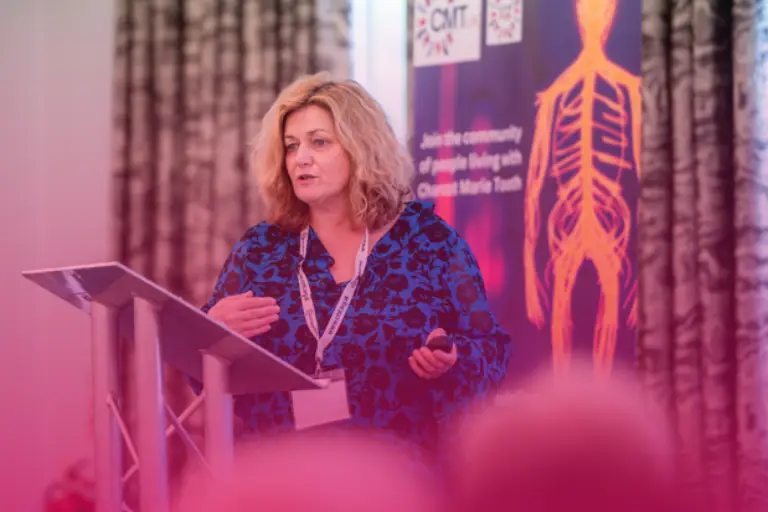
Transforming Clinical Trials for Charcot-Marie-Tooth Disease
CMTUK is proud to be supporting a groundbreaking new research project led by Professor Mary Reilly at University College London. The project will develop better ways to track changes in Charcot-Marie-Tooth disease (CMT), helping to speed up clinical trials and bring us closer to effective new treatments for CMT.
CMT is a progressive condition that damages the peripheral nerves, affecting both movement and sensation. While symptoms gradually worsen over time, current medical tests often fail to capture the small changes people experience in daily life. This makes it harder to provide the right care and slows down progress towards new therapies.
With several promising CMT treatments now in development, researchers urgently need more accurate ways to measure changes in the condition. Clinical trials usually last just one to two years, so being able to spot even small shifts in nerve and muscle health is vital for showing whether a treatment is working.
The new TRANSFORM-CMT research programme will:
● Develop a new MRI-based test to detect tiny changes in leg muscles, where fat builds up as a result of nerve damage.
● Gather detailed insights from people living with CMT across the UK to build a clearer picture of how the condition progresses and impacts daily life.
● Train and equip more centres across the country to run CMT clinical trials, giving more people the opportunity to take part in research.
A step towards better CMT treatments
By creating more reliable ways to track CMT progression, this research will make clinical trials faster and more effective. The findings could also support decisions about whether new CMT treatments should be made available on the NHS, by showing how therapies improve quality of life and reduce the wider impact on healthcare.
This project marks a crucial step forward for the CMT community. With more accurate tools and better trial infrastructure, the UK will be ready to test emerging therapies and bring effective treatments closer for people living with Charcot-Marie-Tooth disease.